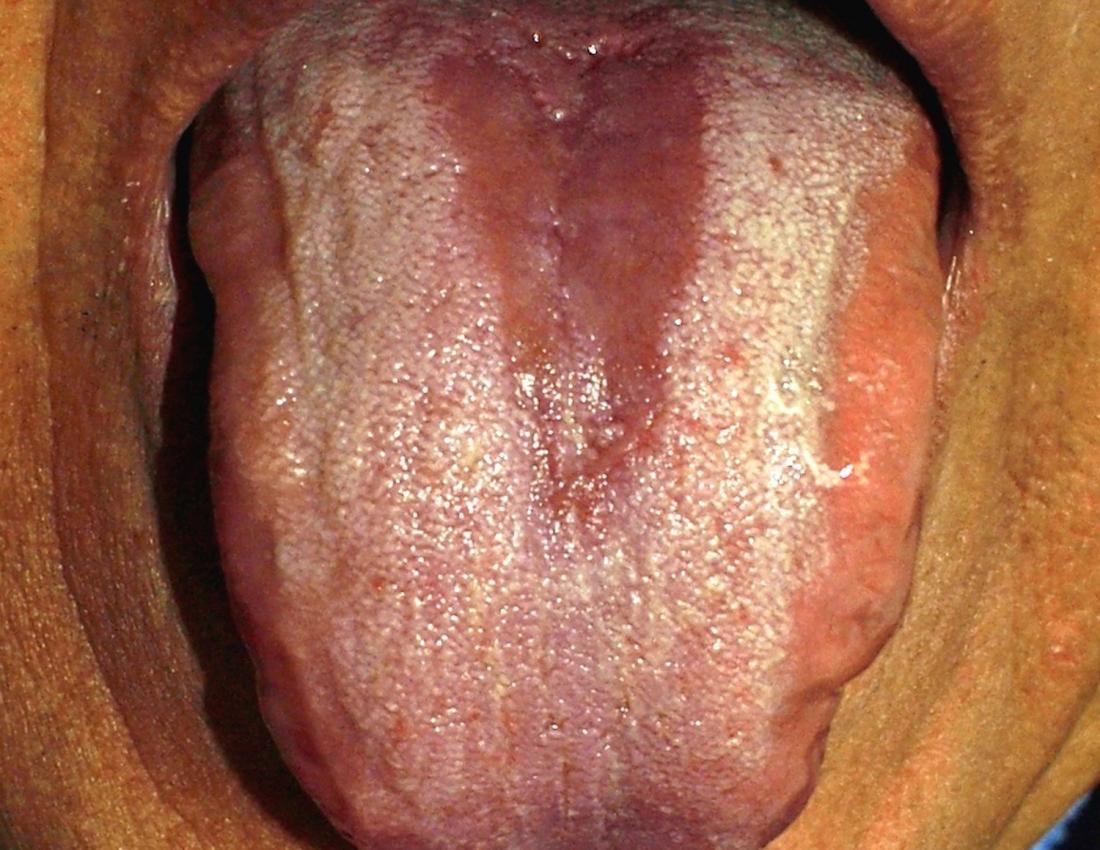Doctors call mouth ulcers and other symptoms outside of the digestive tract extra-intestinal manifestations of Crohn’s disease.
Some people develop mouth ulcers several years before they experience any intestinal symptoms due to Crohn’s disease.
Researchers estimate that 20 to 50 percent of people with Crohn’s disease experience mouth ulcers at some point.
In this article, learn more about the symptoms, causes, and treatments available for Crohn’s mouth ulcers.
Symptoms

Mouth ulcers can become more noticeable during a flare-up.
Image Credit: Ryanfransen, 2007
Crohn’s disease commonly causes mouth ulcers known as canker sores. These develop around the base of the gums.
They differ from other mouth lesions, such as herpes, which appear on the outside of the mouth on the lips.
The ulcers may have the following characteristics:
- round or oval shape
- small size
- yellow or gray color
- a red “halo” or border
- painful
- appearing in groups
Many people with Crohn’s disease will notice their mouth ulcers get worse during a flare-up. They may even observe mouth ulcers before other flare-up symptoms begin.
In rare cases, Crohn’s disease may also cause pustules, or fluid-filled ulcers, called pyostomatitis vegetans to develop in the mouth.
Causes
Crohn’s mouth ulcers may occur for several different reasons, including:
- inflammation in the body linked to Crohn’s disease
- vitamin and mineral deficiencies
- as side effects of Crohn’s disease medications
As a result, Crohn’s may either directly or indirectly lead to mouth ulcers. Men and children with the condition are more likely to have mouth ulcers.
People with Crohn’s disease are more likely to develop mouth ulcers than people with other inflammatory bowel conditions, such as colitis.
Having Crohn’s disease also puts a person at risk for some nutritional deficiencies, which may contribute to mouth problems. For example, vitamin B-12 and zinc deficiencies can both cause glossitis. A vitamin K deficiency can cause bleeding gums.
Sometimes mouth ulcers can develop as a side effect of Crohn’s medications.
A doctor should discuss the potential side effects of Crohn’s medications before prescribing them.
Medications and their possible side effects include:
- Budenoside, a steroid that can cause tongue redness and swelling.
- Ciclosporin, which can cause gum swelling.
- Loperamide, an antidiarrhea medication that can cause dry mouth.
- Methotrexate, a folic acid antagonist that can cause ulcers and gingivitis.
- Tacrolimus, which can cause mouth ulcers and oral thrush.
Anyone who experiences these symptoms should continue to take their medications, and talk to their doctor about switching medicines or treating the side effects.
Other Crohn’s symptoms in the mouth

Glossitis can be a symptom of Crohn’s disease.
Image credit: Klaus D. Peter, 2012.
In addition to ulcer’s, Crohn’s disease can cause other changes in the mouth, including:
- bad breath
- bleeding gums
- dental decay due to vomiting or acid reflux
- dry mouth, which can increase the risks for dental decay
- inflamed lips
- inflamed or red tongue, known as glossitis
- redness and scaling around the lips
Treatments
Treatment for Crohn’s mouth ulcers may include a combination of medications and home remedies.
A doctor may prescribe topical medications, such as:
- 2 percent lidocaine
- 0.1 percent triamcinolone
- dexamethasone elixir
They may also prescribe steroids to reduce inflammation throughout the body. Reducing inflammation in the body is essential, as a person experiencing more Crohn’s mouth ulcers is likely having a flare-up.
Sometimes, a doctor may adjust a person’s regular Crohn’s medications if the medications are causing intolerable side effects.
Home remedies
A doctor may recommend taking additional vitamin and mineral supplements to compensate for nutritional deficiencies. Possible supplements include vitamin B-12, iron, folate, or zinc.
If the ulcers are not open, try swishing with warm water and a pinch of salt. If they are open, refrain from using salt as it can cause pain.
It is vital to maintain good oral hygiene even if mouth ulcers are causing discomfort. Brushing the teeth regularly with a soft-bristled toothbrush can help. Drinking plenty of water will also help keep the mouth moist.
Although most data comes from case reports and not large-scale research studies, it is possible that eating certain foods could trigger inflammation in the body. This is especially true for children with Crohn’s disease.
A doctor may recommend keeping a food journal or cutting out foods one at a time to determine if a particular food is contributing to Crohn’s mouth ulcers.
Outlook
Crohn’s disease can cause painful mouth ulcers and symptoms in the mouth. They will usually go away with time, but medical treatments and home remedies can help relieve discomfort.
However, if a person’s ulcers do not respond to treatment, it is vital to speak to a doctor to make sure the ulcers are not due to another medical condition.
Let’s block ads! (Why?)





